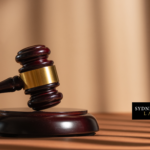Lawyer Struck Off for Cheating During Uni

Could being caught for plagiarism affect your chances of being admitted as a lawyer? It may sound harsh, but students found to have engaged in academic misconduct can be refused admission as lawyers.
To become a lawyer, hopeful applicants must first demonstrate that they are “fit and proper” people. This involves disclosing any criminal record, bankruptcy, and interestingly, any academic misconduct.
In 2007, a case involving two law graduates caused a stir in the legal community. The Victorian students were in their final year of combined Law and Business degrees, when it was noticed that their assessments bore striking similarities. Both were found to have cheated and were given zeros, but that was not the end of it. When it came to applying for admission as lawyers, one of the students partially disclosed the indiscretion while the other failed to disclose it at all.
The first student, known only as ‘GL’, admitted that an incident occurred but did not give the full details. The second student, ‘OG’, ultimately said that he neglected to disclose the incident because it was not formally referred to the university Board.
It was decided that GL would not be admitted as a lawyer because his disclosure was not “full and frank”, as required.
Meanwhile, OG was formally admitted as a lawyer because his indiscretion was not initially detected. During the investigation into GL, OG was called to give evidence and, predictably, an investigation into him was triggered.
During OG’s hearing, part of an earlier judgment was quoted:
“there can be no doubt that if a candidate is admitted to practise as a barrister and solicitor of this Court and it is afterwards discovered that the certificate of the Board upon which he was admitted ought not to have been granted… this Court has ample power in its inherent jurisdiction to revoke the admission.”
It was decided that OG had misrepresented himself to the Board, and he was “struck off” from the roll of legal practitioners.
Will I Get Admitted if I Disclose Fraud or Dishonesty?
Dishonesty offences and academic misconduct are taken very seriously when it comes to applying for admission as lawyer.
The main reason that neither OG nor GL were admitted was because they did not make “full and frank” disclosures as and when required. Indeed, it appears that the Board may have been more sympathetic if they had made full disclosures, especially if they exhibited that they should nevertheless be admitted as lawyers.
What Happens if I Fail to Disclose?
If an offence or indiscretion is detected during the application process, the failure to disclose could cause the Board to refuse admission. Alternatively, later detection can lead to a lawyer being “struck off” the roll of lawyers for professional misconduct.
It is also important to note that the admission process requires the completion of a statutory declaration, and that making a false statutory declaration is a criminal offence under section 25 of the Oaths Act 1900 (NSW). The maximum penalty is five years imprisonment.
What if I’m Thinking of Studying Law, or am Part Way Through?
If you are interested in law, or are part way through your degree, and are concerned about something that happened in your past, you can apply for an early assessment of suitability to determine whether your offences or indiscretions will prevent you from becoming a lawyer.
This process can help to create certainty and potentially save years of wasted study and investment.
Honesty Is the Best Policy…
Given the exacting requirements of a ‘full and frank disclosure’, your best bet is to disclose all criminal offences and academic indiscretions in detail. There are many lawyers who have been admitted despite their past offences, and the Board will look carefully at a range of factors when considering your application; including the nature of the incident/s, the time that has passed since, and the actions you have taken in between.






